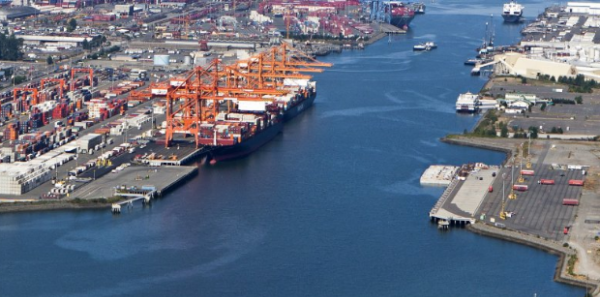Two marine terminals at the Port of Tacoma in Washington implement steep fees on long-resting containers to reduce a large overflow that is gumming up operations and slowing the delivery of cargo.
Specifically,Husky Terminal & Stevedoring began assessing a $315 charge for containers that have dwelled on the docks for more than 15 days to improve velocity, according to a customer notice. The fee is due before cargo will be released.
At the same time, Tacoma’s Washington United Terminal has notified customers that a long-term dwell fee of $310 will be assessed beginning Nov. 15 on all import units that have exceeded 15 calendar days on the terminal.
The measures differ in notable ways from those that went into effect in Southern California this week: They are being established by private terminal operators, not the port authorities; they are one-time fees that don’t escalate over time; and they are assessed against importers, not ocean carriers.
To remind, Tacoma and Seattle are experiencing congestion problems this year even though cargo volumes are lower than before the pandemic, underscoring the interconnectedness of the intermodal freight system on the West Coast and how some cargo is being routed away from the overcrowded California gateway.
The twin ports, partners in the Northwest Seaport Alliance, handled 360,517 twenty-foot equivalent units in September, 5% less than in 2019. For the first nine months of the year, the ports handled 106,261 fewer TEUs than two years ago.
There are currently 15 vessels at anchor in Puget Sound, plus three offshore, waiting for a berth. Eight of the ships are container vessels, according to the Marine Exchange of Puget Sound.
In light of the situation, Seattle and Tacoma port authorities aren’t planning to implement any emergency late-pickup fees because they don’t hold direct contracts with carriers






























































